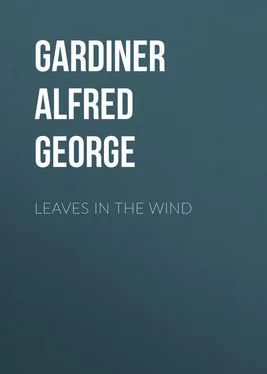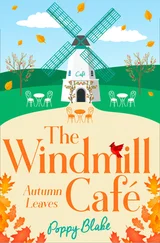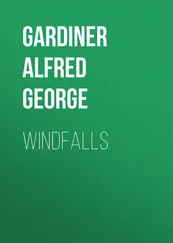Alfred Gardiner - Leaves in the Wind
Здесь есть возможность читать онлайн «Alfred Gardiner - Leaves in the Wind» — ознакомительный отрывок электронной книги совершенно бесплатно, а после прочтения отрывка купить полную версию. В некоторых случаях можно слушать аудио, скачать через торрент в формате fb2 и присутствует краткое содержание. Жанр: История, foreign_antique, foreign_prose, на английском языке. Описание произведения, (предисловие) а так же отзывы посетителей доступны на портале библиотеки ЛибКат.
- Название:Leaves in the Wind
- Автор:
- Жанр:
- Год:неизвестен
- ISBN:нет данных
- Рейтинг книги:5 / 5. Голосов: 1
-
Избранное:Добавить в избранное
- Отзывы:
-
Ваша оценка:
- 100
- 1
- 2
- 3
- 4
- 5
Leaves in the Wind: краткое содержание, описание и аннотация
Предлагаем к чтению аннотацию, описание, краткое содержание или предисловие (зависит от того, что написал сам автор книги «Leaves in the Wind»). Если вы не нашли необходимую информацию о книге — напишите в комментариях, мы постараемся отыскать её.
Leaves in the Wind — читать онлайн ознакомительный отрывок
Ниже представлен текст книги, разбитый по страницам. Система сохранения места последней прочитанной страницы, позволяет с удобством читать онлайн бесплатно книгу «Leaves in the Wind», без необходимости каждый раз заново искать на чём Вы остановились. Поставьте закладку, и сможете в любой момент перейти на страницу, на которой закончили чтение.
Интервал:
Закладка:
As he went on up the lane my spade took up that word like a refrain. At every rhythmic stroke it seemed to cry "pig" with increasing vehemence.
Then felt I like some watcher of the skies,
When a new planet swims into his ken.
A pig? Why not? – and I straightened my back again. I felt that something prodigious was taking shape. My eye wandered across the orchard. There were the hives standing in a row – three of them, to be increased to twelve as fast as the expert, who has set up her carpenter's shop in the barn, can get the parts to put together. And beyond the hives three sheds – one for poultry, one for the hot-bed for mushrooms, the third – why, the very thing… Concrete the floor and it would be a very palace for a pig.
I took a turn up the garden to look this thing squarely in the face, and at the gate I saw the farmer's wife coming down the lane. We stopped, and she talked about her cows and about an order she had got from the Government to plough up more pasture, and then – as if echoing the very thought that was drumming in my head – about the litter of pigs she was expecting and of her wish to get the cottagers to keep pigs. Why, this was a very conspiracy of circumstance, thought I. It seemed as though man and events alike were engaged in a plot to make me keep a pig.
With an air of idle curiosity I encouraged the farmer's wife to talk on the thrilling theme, and she responded with enthusiasm. The pig, I found, was a grossly maligned animal. It had lain uncomplainingly under imputations that were foul slanders on its innocent and lovable character. Yes, lovable. She had had pigs who were as affectionate as any dog – pigs that followed her about in sheer friendliness. And as for the charge of filthiness, who was to blame? We gave them dirty styes and then called them dirty pigs. But the pig was a clean animal, loved cleanliness, thrived on cleanliness. It was man the dirty who kept the pig foul and then called him unclean. And what a profitable animal. She had had a sow which had produced 108 pigs and 102 of them came to maturity. What an example to Shoreditch, I said. Perhaps they don't give them clean styes in Shoreditch, she said. No, I replied, they give them dirty styes…
I went indoors, suffused with the vision of the transfigured pig, the affectionate, cleanly, intelligent pig, and took up a paper, and the first thing my eye encountered was an article on "The Cottager's Pig." I read it with the frenzy of a new religion and rose filled to the brim with lore about the animal to whose existence (except in the shape of bacon) I had been indifferent so long. And now, fully seized with the idea, it seemed that the world talked of nothing but pig. It was only that my ears were unstopped and my eyes unsealed by an awakened curiosity; but it seemed to me that the pig had suddenly been born into the universe, and that the air was filled with the rumour of his coming. I encountered the subject at every turn. In the Times I read a touching lament over the disappearance of the little black pig. Elsewhere I saw a facsimile letter from Lord Rhondda, in which he declared his loyalty to the pig and denied that he had ever spoken evil of him.
It was a patriotic duty to keep a pig. He was an ally in the war. I saw the whole German General Staff turning pale at his name, as Mazarin was said to turn pale at the name of Cromwell. Arriving in town I met the eminent politician Mr. R – and he began to tell me how he had started all his cottagers in the North growing pig. By nightfall I could have held my own without shame or discredit in any company of pig dealers, and in my dreams I saw the great globe itself resting on the back, not of an elephant, but of a pig with a beautiful curly tail.
Later: I have ordered the pig.
IN DEFENCE OF IGNORANCE
A young man wrote to me the other day lamenting his ignorance and requesting me to tell him what books to read and what to do in order to become learned and wise. I sent him a civil answer and such advice as occurred to me. But I confess that the more I thought of the matter the less assured I felt of my competence for the task. I ceased to be flattered by the implied tribute to my omniscience, and felt rather like a person who gives up a third-class ticket after he has ridden in a first-class carriage might feel. I surveyed my title to this reputation for learning, and was shocked at the poverty of my estate. As I contrasted the mountain of things I didn't know with the molehill of things I did know, my self-esteem sank to zero. Why, my dear young sir, thought I, I cannot pay twopence in the pound. I am nothing but the possessor of a wide-spread ignorance. Why should you come to me for a loan?
I begin with myself – this body of me that is carried about on a pair of cunningly-devised stilts and waves a couple of branches with five flexible twigs at the end of each, and is surmounted by a large round knob with wonderful little orifices, and glittering jewels, and a sort of mat for a covering, and which utters strange noises and speaks and sings and laughs and cries. Bless me, said I, what do I know about it? I am a mere bundle of mysteries in coat and breeches. I couldn't tell you where my epiglottis is or what it does without looking in a dictionary. I have been told, but I always forget. I am little better than the boy in the class. "Where is the diaphragm?" asked the teacher. "Please sir, in North Staffordshire." said the boy. I may laugh at the boy, but any young medical student would laugh just as much at me if I told him honestly what I do not know about the diaphragm. And when it comes to the ultimate mysteries of this aggregation of atoms which we call the human body the medical student and, indeed, the whole Medical Faculty would be found to be nearly as ignorant as the boy was about the diaphragm.
From myself I pass to all the phenomena of life, and wherever I turn I find myself exploring what Carlyle calls the "great, deep sea of Nescience on which we float like exhalations that are and then are not." I see Orion striding across the southern heavens, and feel the wonder and the majesty of that stupendous spectacle, but if I ask myself what I know about it I have no answer. And even the knowledge of the most learned astronomer only touches the fringe of the immensity. What is beyond – beyond – beyond? His mind is balked, as mine is, almost at the threshold of the mighty paradox of a universe which we can conceive neither as finite nor as infinite, which is unthinkable as having limits and unthinkable as having no limits. As the flowers come on in summer I always learn their names, but I know that I shall have to learn them again next year. And as to the mystery of their being, by what miracle they grow and transmute the secretions of the earth and air into life and beauty – why, my dear young sir, I am no more communicative than the needy knife-grinder. "Story? God bless you, I have none to tell, sir."
I cannot put my hand to anything outside my little routine without finding myself meddling with things I don't understand. I was digging in the garden just now and came upon a patch of ground with roots deep down. Some villainous pest, said I, some enemy of my carrots and potatoes. Have at them! I felt like a knight charging to the rescue of innocence. I plunged the fork deeper and deeper and tore at the roots, and grew breathless and perspiring. Even now I ache with the agonies of that titanic combat. And the more I fought the more infinite became the ramifications of those roots. And so I called for the expert advice of the young person who was giving some candy to her bees in the orchard. She came, took a glance into the depths, and said: "Yes, you are pulling up that tree." And she pointed to an ivy-grown tree in the hedge a dozen yards away. Did I feel foolish, young sir? Of course I felt foolish, but not more foolish than I have felt on a thousand other occasions. And you ask me for advice.
Читать дальшеИнтервал:
Закладка:
Похожие книги на «Leaves in the Wind»
Представляем Вашему вниманию похожие книги на «Leaves in the Wind» списком для выбора. Мы отобрали схожую по названию и смыслу литературу в надежде предоставить читателям больше вариантов отыскать новые, интересные, ещё непрочитанные произведения.
Обсуждение, отзывы о книге «Leaves in the Wind» и просто собственные мнения читателей. Оставьте ваши комментарии, напишите, что Вы думаете о произведении, его смысле или главных героях. Укажите что конкретно понравилось, а что нет, и почему Вы так считаете.












